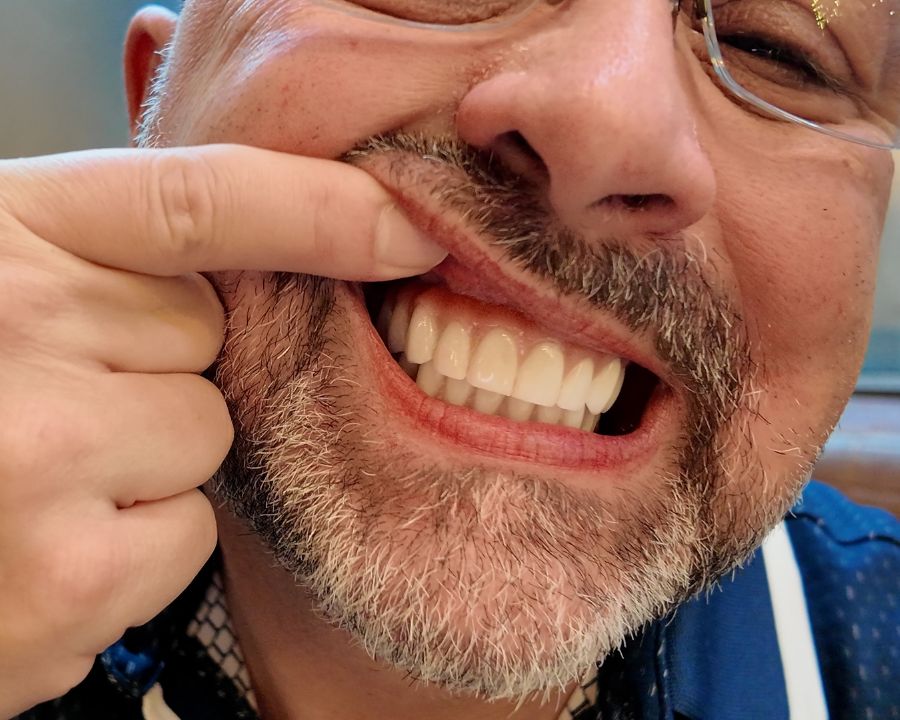In this guide, we'll explore everything you need to know about zygomatic dental implants, from their benefits and success rates to the surgical procedure and post-operative care.
If you're seeking a reliable solution to replacing missing teeth, zygomatic dental implants might just be the answer you've been looking for. These unique and innovative implants are designed to provide support for your new teeth in cases where conventional dental implants may not be suitable.
So, let's dive in and discover if zygomatic dental implants are the right choice for you.
What are Zygomatic Dental Implants?

Zygomatic dental implants are a specialized type of dental implant designed to be placed in the zygomatic bone, which is the cheekbone.
Introduced in the late 1990s by Dr. Per-Ingvar Brånemark, a pioneer in implant dentistry, these implants provide a strong and stable foundation for prosthetic teeth.
Their longer length and unique anchorage in the zygomatic bone make them especially suitable for patients who have experienced significant bone loss in their upper jaw.
Why Choose Zygomatic Dental Implants?
Zygomatic dental implants offer several advantages over traditional dental implants for specific patient groups. These include:
- Reduced need for bone grafting: Patients with insufficient bone volume in the upper jaw may not qualify for traditional dental implants. However, zygomatic implants can often be placed without additional bone grafting procedures, reducing treatment time and complexity.
- Immediate loading: At NUVIA, we offer Permanent Teeth in 24 Hours. This means that your permanent and final set of new teeth are connected and fixed to your implants 24 hours after placement.
- High success rates: Studies have reported high success rates for zygomatic dental implants, ranging between 92% and 100% over five years.
- Improved quality of life: The stability and strength provided by zygomatic implants can drastically improve a patient's ability to eat, speak, and smile with confidence.
Assessing Candidacy for Zygomatic Dental Implants

Before undergoing zygomatic dental implant treatment, a thorough assessment must be conducted to determine whether a patient is a suitable candidate. This evaluation typically includes:
- Medical and dental history review: Your surgeon and anesthesia provider will review your overall health and dental history to ensure that you are a good candidate for implant surgery.
- Comprehensive oral examination: A thorough examination of your teeth, gums, and jaw will be performed to identify any potential issues that could impact the success of the implant procedure.
- Diagnostic imaging: Advanced imaging techniques, such as cone-beam computed tomography (CBCT) scans, will be used to evaluate the volume and quality of your zygomatic bone and will allow us to plan the precise placement of the implants.
The Zygomatic Dental Implant Procedure
At NUVIA, the zygomatic dental implant procedure aways involves general anesthesia or IV sedation. The CRNA and Surgeon combine to ensure your comfort and safety. The surgery includes several steps :
- Incisions and flap elevation: Your oral surgeon will create incisions in the gum tissue to expose the underlying bone.
- Implant placement: The zygomatic implants are carefully inserted into the zygomatic bone.
- Flap closure: Once the implants are in place, the gum tissue is repositioned and sutured closed to facilitate healing.
- Prosthetic attachment: (Prosthetic is just a fancy way of saying "teeth") NUVIA provides your permanent teeth only 24 Hours after surgery. This means no waiting for your teeth for up to 10+ Months like what you may experience getting treated somewhere else.
Post-Operative Care Includes :
- Pain management: Your surgeon may prescribe pain relievers to help manage any discomfort following the procedure. Over-the-counter pain medication may also be recommended, depending on the level of discomfort.
- Swelling and bruising: It's normal to experience some swelling and bruising around the surgical site. Applying a cold compress to the area can help reduce swelling and provide relief. Swelling typically subsides within a few days to a week.
- Antibiotics and oral hygiene: You may be prescribed antibiotics to prevent infection. It's crucial to maintain a strict oral hygiene routine, including gentle brushing, flossing, and rinsing with an antimicrobial mouthwash as directed by your dentist.
- Diet: A soft diet is recommended for the first few days after surgery. Remember, if you can cut the food with a plastic for you can eat it until your surgeon approces a normal diet again.
- Follow-up appointments: Regular check ups and cleanings are necessary to ensure the longevity of your zygomatic dental implants.
Conclusion
Zygomatic dental implants offer a reliable and effective solution for patients with significant bone loss in the upper jaw, providing a strong and stable foundation for dental prosthetics. With high success rates and numerous advantages over traditional dental implants, zygomatic implants have the potential to significantly improve a patient's quality of life.
If you're considering zygomatic dental implants, it's essential to consult with a skilled and experienced oral surgeon to determine if this treatment option is right for you.
Find out if you are eligible Dental Implants by taking this 60 second quiz











.jpg)

.jpg)


